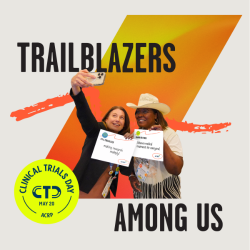The Association of Clinical Research Professionals (ACRP) is helping clinical research sites overcome one of their greatest obstacles to adoption of decentralized clinical trials (DCTs): ensuring sites are being appropriately compensated for managing trials that include DCT elements.
According to a new white paper published by ACRP today, clinical research professionals say being fairly compensated for trials that include DCT elements is among the top three barriers to adopting DCT trials. Through the work of the ACRP DCT Think Tank Working Group, ACRP today also released the new ACRP DCT Budget Buddy™, a free resource to help site teams plan their DCT trial budgets with key consideration for seven study components.
The paper, Helping Clinical Research Sites Budget for Decentralized Trial Elements: Ensuring Accurate and Adequate Compensation for Sites Implementing DCTs, is the product of a multi-stakeholder think tank convened by ACRP to capture and share viewpoints on obstacles to DCT adoption.
Among these obstacles is to ensure that sites are fully reimbursed for trials that include DCT elements.
“Aligning site responsibilities with site budgets is long overdue, even in trials without DCT components,” says Caroline Redeker, Senior Vice President, Corporate Development, at Advanced Clinical. “When you change the trial design to a decentralized format, facility overhead fees may not apply and certainly do not cover the new responsibilities at the site level. Sponsors have the benefits of DCTs providing more diverse populations and increasing the number of patients willing to participate; however, they must also account for the logistics, training, vendor onboarding and data integration activities that fall on the shoulders of the sites. Discussing these ‘grey areas’ or new responsibilities will be critical to protecting the study conduct quality and to ensuring site budgets are reflective of the work being performed.”
The first step in supporting sites to be accurately and adequately compensated for trials that have DCT elements is to help them think through key considerations that might be outside the scope of their traditional trial work. The ACRP DCT Budget Buddy™, customizable for each study, helps site teams consider budget implications in planning, technology, patient engagement and management, patient-focused technology, data management and quality control, monitoring and site management, and regulatory compliance.
“At a time of significant and positive change in how clinical trials are conducted, we’re committed to capturing the collective experiences and expertise of our members and subject matter experts to develop a resource that will support sites in driving adoption of decentralized components and to convene the industry in supporting their success,” says ACRP Executive Director Susan Landis.
To learn more about the ACRP DCT Budget Buddy™, click here.
To learn more about ACRP’s new white paper, Helping Clinical Research Sites Budget for Decentralized Trial Elements: Ensuring Accurate and Adequate Compensation for Sites Implementing DCTs, click here.
Visit the ACRP DCT Resource Center for additional resources to help you navigate adoption of DCTs.



